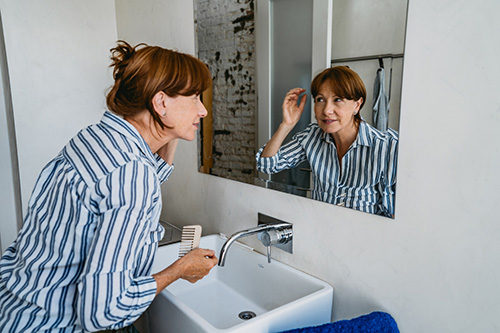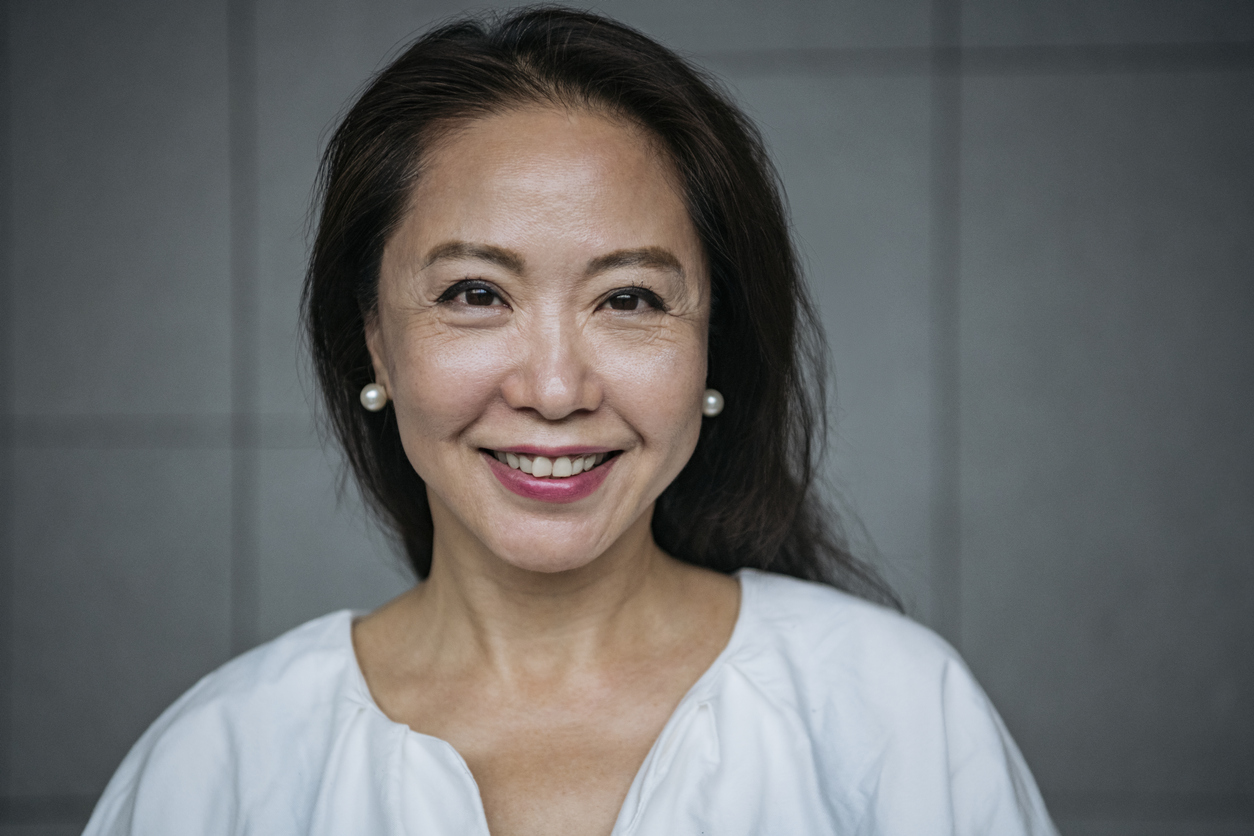No, menopausal hair loss doesn’t have to be permanent. The root causes of hair loss during menopause can be a variety of imbalances in the body, including high stress levels, and there is a genetic component to this as well.

One of the major shifts that can take place during perimenopause is an increase in your androgen-to-estrogen ratio. This just means you are producing relatively more androgens (such as testosterone) and less estrogens than you were before, which can lead to more hair in places you don’t want it and less hair on your head.
There are also nutritional factors to keep in mind when you want to prevent loss of hair in menopause. Hair loss can sometimes occur when you aren’t getting enough vitamins and minerals through your diet. Also, if your diet is heavy in refined carbohydrates, your body has to increase insulin production. With this increase in insulin, your system tends to move toward higher androgen production. One way to regain balance is through improved nutrition and gentle endocrine support. To get started, you might take a look at the nutritional and lifestyle guidelines in our section on healthy nutrition.
Certain herbs, such as Ginkgo biloba, are believed to increase blood flow to the scalp and help keep hair follicles healthy and growing, as can massage and acupuncture, though these do not seem to work equally well for everyone. For more information on hair loss in menopause, read our article on hair loss in women.
Return to:









